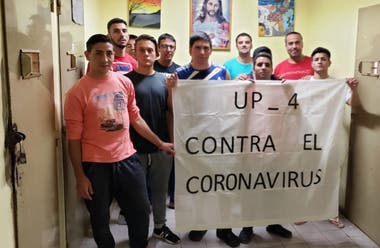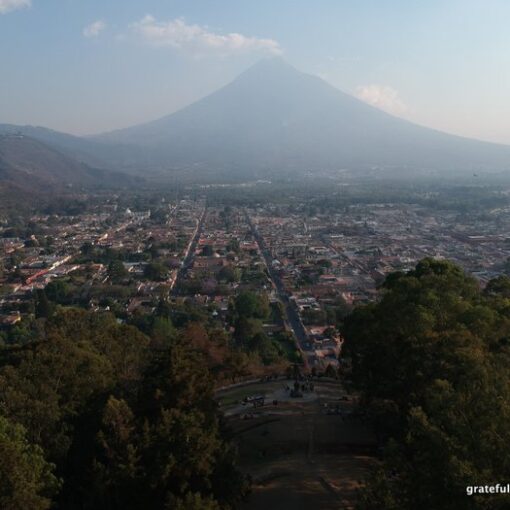When you don’t know if you are going to be able to eat or have adequate space to concentrate and do your homework, and you don’t have a broadband or a computer, studying seems to go against the grain. A dangerous current that threatens to bend wills. Even the strongest. From the suspension of classes in schools, that is the feeling of
thousands of boys and adolescents in the country
that, before the pandemic, access to basic rights was quite difficult. Among them, that of education.
In times of quarantine,
the situation becomes more complex
. The reconversion of the face-to-face educational system towards more virtual instances limits the learning possibilities of
almost half of the country’s children and adolescents, who do not have a computer or access to broadband
to do their homework: 48.7% do not have a PC and 47.1% do not have Wi-Fi at home, according to the Argentine Social Debt Observatory. This proportion rises to seven out of 10 in the lowest social stratum. On the other hand,
out of 10 boys, two live crowded and a similar proportion share a bed or mattress to sleep,
making the possibility of having an adequate space to carry out school activities extremely difficult. Faced with this reality,
the Minister of Education Nicolás Trotta
ensures, in dialogue with
THE NATION
, that “the main challenge is to make the maximum efforts so that
do not deepen educational inequality
”
Santiago Lazarte, a 17-year-old boy who
dreams of finishing high school
to study Tourism and Hospitality, he does not have that possibility either. He has lived with Naomi, his mother, and his little sister Emily in a hotel located in Constitución, since he was born. Before the pandemic, he walked to the Republic of Lebanon School, where he is in the 5th year.
Now everything is more complicated.
“A few days before classes were cut, the teachers began to ask us for the emails. They send the assignments out there and we have to deliver them also by email and WhatsApp. As there is no Internet in the hotel, I have to
load credit
on the cell phone to receive the emails. Luckily, I have the Connect Equality computer that works a lot for me. I work there and then I go to my cell phone and send by email, “says Santiago, who is part of the Future Graduates program of the
Foundation Foundation
, which consists of a monetary scholarship and the monitoring of a tutor.
“To load credit, I use the scholarship money. Sometimes my dad helps me, since he doesn’t live with us. The problem is when I can’t load anywhere, because I can’t stray too far because of the quarantine,” adds Santiago. , who misses the possibility of working at school. “The three of us live in a small room,” he continues. “Sometimes I have to ask my mom and my sister to be quiet so I can concentrate.”
The main challenge is to make maximum efforts so that educational inequality does not deepen.
Nicolás Trotta, Minister of Education of the Nation
For Marcelo Miniati, executive director of Cimientos, studying is, for children living in vulnerable contexts, the possibility of overcoming the difficulties of the present to arrive at a better future.
Quarantine makes that possibility more complex for them.
“80% of these boys have a cell phone with Internet access, but in 60% of cases, that phone
belongs to an adult
, who also needs it and, therefore, can lend it for a while. Also, most of the tasks are thought
to be done by computer
, and having a computer in the most vulnerable contexts is something exceptional “, points out Miniati, who adds that many times these students do not know how certain aspects of technology work and do not have someone in their environment who can explain them.
The referent of Cimientos, an organization that has different accompaniment programs for adolescents and young people so that they can complete their secondary studies and enter the world of work, believes that
quarantine will have a very harmful impact on the educational path of thousands of children
. “It is not only going to deepen the gap that already exists. After quarantine, it is likely that many children have moved away from schooling. Due to the economic crisis caused by the extension of isolation, especially in the poorest households, the families of these children They are going to need them to generate some income through a job or to take care of the little brothers. This always happens after an economic crisis, “Miniati laments.
It is not only going to deepen the gap that already exists. After quarantine, many boys are likely to have drifted away from school.
Marcelo Miniati, Foundation Foundation
A postcard that promises to get worse
At the end of last year, the snapshot on the socioeconomic situation of the Argentines was extremely alarming. According to the latest figures from Indec,
the poverty rate reached 35.5% of the inhabitants
in the second semester of 2019 and, if you put the magnifying glass on in childhood,
52.3% of children under 14 are poor, while among those between 15 and 29 it reaches 42.5%
. In addition, estimates from the Argentine Social Debt Observatory show that 7.4% of households suffered from severe food insecurity and 14% of households constituted precarious housing. The picture promises to worsen during the quarantine.
To reach all children, but especially the most vulnerable populations, the Ministry of Education developed a strategy that has so many ingredients
digital as well as analog
. “On the one hand, we have the
We continue educating portal
, which has resources for the family but also for the teacher and the student, and, on the other hand, we put together content for public television and for National Radio. At the same time, we made nine notebooks that cover three weeks of classes, from Wednesday, April 1 to Friday, 17. There we have a day-by-day schedule of activities for each of the moments of the school year that can be downloaded from the web, “explains Trotta.
“The portal is from
free seaworthiness
from the commitment of the three cell phone companies and that for us is an important step because in Argentina there are more cell phones than people -continues the official-. Together with television, they are the two technologies that are most present in every home. That it does not consume data does not solve, but it helps the possibility of accessing the page from mobile phones. “On the other hand, he details that they are distributing 7,000,000 notebooks through the provinces, of the Ministry of Social Development, in the dining rooms , by the different social movements, and which can be withdrawn in some supermarkets located in the middle and popular sectors.
However, Ianina Tuñón, researcher in charge of the UCA Social Debt Barometer, does not see clearly the way in which children living in poverty
will be able to capitalize this time in quarantine
.
“The State is carrying out a series of actions through programming on public channels that is very interesting, but
television is a window that is being used more than anything by the social sectors that are best
. In order to take advantage of this material, there must be homes with a conscience and the capacity to do so. Although it is true that in almost all homes there is television, quarantined living conditions are very difficult, “says the specialist.
Tuñón details that “in the strata of marginal workers, where
30.5% of boys from 0 to 17 years old live
, adults are haunted by multiple daily concerns, especially what to eat and where to get that food. “The researcher emphasizes that most of these adults are
informal workers
precarious people who, with quarantine, are negotiating, at best, their work continuity, probably earning much less than before, because in many cases they work with productivity income. “They are homes with a propensity to suffer other problems such as
addictions or violence
, which are exacerbated in quarantine. It is difficult to think that these adults can guarantee a learning routine, “says Tuñón.
The educational reality of most of the Argentine boys is not that of virtual classes by Zoom or other platforms, that is the reality of just 4%.
Ianina Tuñón, ODSA / UCA researcher
The specialist adds that on the next step, that of the popular classes,
40% of the boys live
. “They are psychologically better-prepared homes for quarantine, with moms trying to help children with the tasks they receive on Facebook or Whatasapp. But it also represents a great challenge for them
sustain activities regularly
. The school has pedagogical resources that the family cannot recreate. In many of these homes there is a cell phone, but not always with connectivity. Also, a cell phone is not the most suitable way to carry out tasks. In any case, the educational reality of most of the Argentine boys is not that of the virtual classes by Zoom or other platforms, that is the reality of,
just 4%
“says Tuñón.
Use Word from your cell phone
For Milagros Cañete, 16, quarantine meant, among other things, the challenge of
learn to use Word from the cell phone
. “Most teachers send homework to do by Word, but I don’t have a computer. I have no choice but to do things with my cell phone, but
it costs me a lot
. I charge him credit money and discharge things, “says Milagros, also a fellow with Cimientos, who, before the suspension of classes, traveled collectively from Villa Itatí, in Quilmes, to the secondary school located in Barracas, where he attended 5th year.
“As my mom works a few days in a neighborhood dining room, sometimes I have to
take care of Mateo, my 4 year old brother
. So I try to make time to do my homework more late at night. I also hope that all this happens soon, because it is better to have classes at school. There is room to do things and we also have a teacher to explain to us, “adds Milagros, who dreams of studying Economic Sciences.
What we are experiencing is
an unexpected laboratory
, argues professor and researcher Axel Rivas. “Perhaps the students are experiencing a kind of painful awareness
of the value of the school
before his physical disappearance. I suspect that many have begun to value their routines and teachers more, in addition to missing their peers, “reflects Rivas, who believes that his latest book, entitled
Who controls the future of education?
It could not have been more prophetic.
“There I proposed that the State should design a digital educational system, a great public platform of universal access to increase the sources of student learning. My proposal was inspired by the case of Ceibal in Uruguay, which was a unique case in the region , with full connectivity of schools and with high quality digital resources of public access.
In Argentina, the progress process achieved with Educ.ar, Encuentro and Conectar Igualdad had stopped
“says Rivas, also director of the School of Education of the University of San Andrés. And adds:”
Now we suffer those years
in which it should have invested in creating quality educational resources. Fortunately, the current government has reacted very quickly to create content access options. ”
In the last ten years, the Vicarage of Education together with Father Pepe Di Paola began the establishment of
parochial schools in popular neighborhoods of the City
, with the opening of a trade school in the Barracas neighborhood. Sources from that institution report that today they assist a population of 4,397 students in kindergartens, primary schools, secondary schools, and adult education. They are schools that operate within Villa 1-11-14, Villa 21-24, Villa 15, Villa Lugano, Soldati, Cildañez, Villa Fraga and in Bajo Flores.
The current government has reacted very quickly to create content access options.
Axel Rivas, doctor of Social Sciences, researcher
The children of Arminda Herrada, Randy and Gianfranco Jiménez, attend the Don Bosco school, one of those institutions. Neighbor of the Padre Ricciardelli neighborhood -ex villa 1-11-14- Arminda tells that her children are in 1st and 3rd grade. “With the quarantine, Daniel, my husband, who is a bricklayer,
he lost his job
. So between the two of us we help the boys with the homework.
We do what we can because it costs us a lot
“explains Arminda, who adds that the family only uses a cell phone, which is charged with credit to download the tasks that the teachers send
by Whatsapp
.
“Luckily, the school gave us the children’s books, so they mark the pages to be done. Sometimes we also have to watch a video on YouTube. We take care of the credit. We try to upload once every 15 days because my husband lost his job and we paid rent.
We only have the children’s assignments and the food that the school gives us
. They give us breakfast, lunch and dinner every day, “adds Arminda, who acknowledges that the boys miss school, especially their friends and teachers.
“From an educational perspective we seek to guarantee pedagogical continuity in contexts of social adversity, where the digital divide and inequalities in access are visible. But parish schools are also characterized by cultivating community life, in this sense schools have undertaken various actions that involve the joint participation of parents and teachers, to face isolation and compulsory quarantine, “explains Pbro. Pablo Corbillón, episcopal delegate of the Pastoral Vicarage for Education.
The priest adds that, at the moment, these institutions are carrying out actions aimed at both
guarantee the feeding of the students
-through the daily delivery of food bags-, as to seek educational continuity, through different means of communication between school and family. “The challenges are very great under normal circumstances, it is difficult to explain the enormity of the task due to the crisis that lies ahead,” he analyzes.
All specialists consulted by
THE NATION
they consider that, with the quarantine, the socioeconomic gap that already exists between both ends of the population pyramid
is going to deepen
. Optimism would seem to have no place. But yes the opportunities.
“This situation imposes on us the challenge of thinking about how we can reach children in alternative ways to those proposed by traditional education,” analyzes Marcelo Miniati.
back to school
going to require specific campaigns. And also an offer that combines the classroom system with other resources. The time has come to rethink school. ”
ALSO
.
Publicado en el diario La Nación




